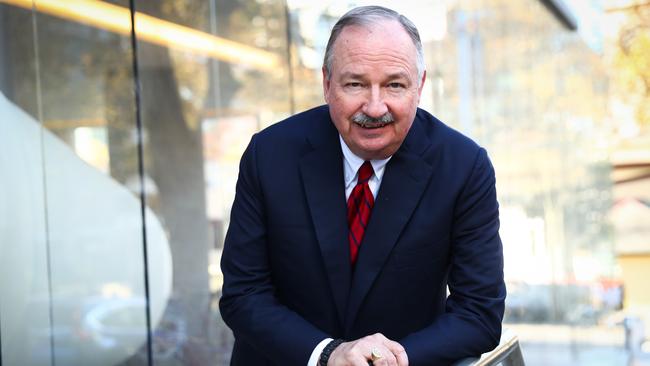Virus takes a heavy toll on Boral’s operations
Building materials supplier Boral has seen earnings margins fall and shut manufacturing plants as COVID-19 and a weakening economy hit demand.

Building materials supplier Boral has seen earnings margins fall and shut manufacturing plants in Australia and the US as COVID-19 and a weakening economy hit demand.
Earnings margins for the period January through April are tracking 3-5 per cent lower than the first half of 2020 as a combination of the pandemic and reduction in residential construction erodes revenues.
Boral’s board has yet to find a replacement for outgoing chief executive Mike Kane, with a recruitment process ongoing ahead of his planned departure after its annual results in August.
Mr Kane has faced a tough few months following a series of profit downgrades and the revelation in December of financial irregularities at its North American windows unit.
Its North American boss, David Mariner, will exit by June after a decade with the company as part of a management reshuffle.
Boral said on Friday its Australian division was the worst hit in the four months to April with concrete volumes down 16 per cent and revenue falling 6 per cent on the previous corresponding period due to January’s bushfires, February’s extreme weather and COVID restrictions which are yet to “fully materialise”.
North American revenues dropped 5 per cent for the four months to April with stone production volumes off 29 per cent and roofing down 14 per cent.
Fly ash volumes has fallen 8 per cent so far in the second half after 5 per cent growth in the first six months of the financial year.
A quarter of its North American staff have been temporarily stood down with four plants in full or partial shutdown due to COVID measures.
Its USG Boral venture has seen revenue tumble 20 per cent with plasterboard sales down 17 per cent in Asia and off 4 per cent in Australia.
Boral temporarily closed the Wyee roofing plant in NSW and shut its Dunmore quarry in April. Further temporary closures are being planned should volumes fall to certain threshold levels.
“We are expecting a decline in demand driven by a slowdown in residential construction activity in particular,” Boral said.
Revenue declines were likely to accelerate in all Boral’s businesses “with a longer-term drag in 2021” from weaker new building activity, broker Citi said.
The company has avoided an equity raising through a new $US200m bond, $365m of new bank loan facilities and extending $US665m of an existing $US750m debt facility until the 2024 financial year. Boral now has $1.3bn of cash and undrawn funds.
“Boral’s shares are trading at a depressed multiple with some expectation of an equity raising reflected in our view,” Citi added. “Clearly the company’s preference is to trade through the situation with an additional debt buffer. However, the magnitude of its operating leverage does pose a risk.”
Mr Mariner will leave in June with North American roofing boss Darren Schulz acting in the president and CEO role. Eric Miller, roofing marketing boss, will take on Mr Schulz’s previous role also on an acting basis.
Boral in April canned its plasterboard venture with Germany’s Knauf and slashed up to 20 per cent of planned spending this year as construction demand tanked due to the COVID-19 pandemic.
Boral faces three months of severely reduced demand for its products due to the coronavirus with cuts to house growth in Australia and the US and commercial construction delayed or cancelled, Moody’s said in April. Boral shares fell 2.3 per cent to $2.51.




To join the conversation, please log in. Don't have an account? Register
Join the conversation, you are commenting as Logout